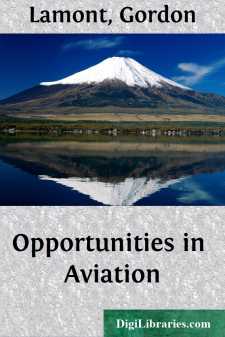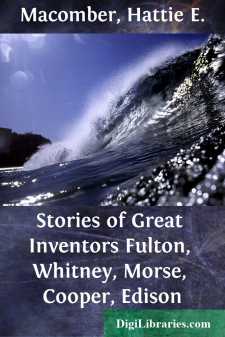Technology & Engineering
Technology & Engineering Books
Sort by:
INTRODUCTORY It was at Mons in the third week of the Great War. The grey-green German hordes had overwhelmed the greater part of Belgium and were sweeping down into France whose people and military establishment were all unprepared for attack from that quarter. For days the little British army of perhaps 100,000 men, that forlorn hope which the Germans scornfully called "contemptible," but...
more...
THE FRANCO-AMERICAN CORPS It was on a cool, starlit evening, early in September, 1916, that I first met Drew of Massachusetts, and actually began my adventures as a prospective member of the Escadrille Américaine. We had sailed from New York by the same boat, had made our applications for enlistment in the Foreign Legion on the same day, without being aware of each other's existence; and in...
more...
by:
Gordon Lamont
INTRODUCTION Any ordinary, active man, provided he has reasonably good eyesight and nerve, can fly, and fly well. If he has nerve enough to drive an automobile through the streets of a large city, and perhaps argue with a policeman on the question of speed limits, he can take himself off the ground in an airplane, and also land—a thing vastly more difficult and dangerous. We hear a great deal about...
more...
INTRODUCTION Since the earliest communities of human beings first struggled for supremacy and protection, the principles of warfare have remained unchanged. New methods have been evolved and adopted with the progress of science, but no discovery, save perhaps that of gunpowder, has done so much in so short a time to revolutionize the conduct of war as aviation, the youngest, yet destined perhaps to be...
more...
THEORIES OF TUITION Only eight years ago, in 1908, it was declared impossible for one man to teach another to fly. Those few men who had risen from the ground in aeroplanes, notably the Wright brothers, were held to be endowed by nature in some very peculiar way; to be men who possessed some remarkable and hitherto unexplained sense of equilibrium. That these men would be able to take other...
more...
by:
Octave Chanute
CHAPTER I. EVOLUTION OF TWO-SURFACE FLYING MACHINE. By Octave Chanute. I am asked to set forth the development of the "two-surface" type of flying machine which is now used with modifications by Wright Brothers, Farman, Delagrange, Herring and others. This type originated with Mr. F. H. Wenham, who patented it in England in 1866 (No. 1571), taking out provisional papers only. In the abridgment...
more...
by:
Isaac Newton
DEFINITIONS DEFIN. I. By the Rays of Light I understand its least Parts, and those as well Successive in the same Lines, as Contemporary in several Lines. For it is manifest that Light consists of Parts, both Successive and Contemporary; because in the same place you may stop that which comes one moment, and let pass that which comes presently after; and in the same time you may stop it in any one...
more...
Introduction This report has been undertaken for a special reason. It is to explain to the taxpayer just why so many of his dollars are going into the American effort to explore space, and to indicate what he can expect in return which is of value to him. Such an explanation, even after 2 years of relatively high-geared activity in the space exploration field, appears to be warranted. There is still a...
more...
Robert Fulton. This story is about a giant. Do you believe in them? He peeps out of your coffee cup in the morning. He cheers you upon a cold day in winter. But the boys and girls were not so well acquainted with him a hundred years ago. About that long ago, far to the north and east, a queer boy lived. He sat in his grandmother's kitchen many an hour, watching the tea-kettle. He seemed to be...
more...
THE MEN BEHIND THE MACHINES I MACHINES. AS SEEN FROM A MEADOW It would be difficult to find anything in the encyclopedia that would justify the claim that we are about to make, or anything in the dictionary. Even a poem—which is supposed to prove anything with a little of nothing—could hardly be found to prove it; but in this beginning hour of the twentieth century there are not a few of us—for...
more...











